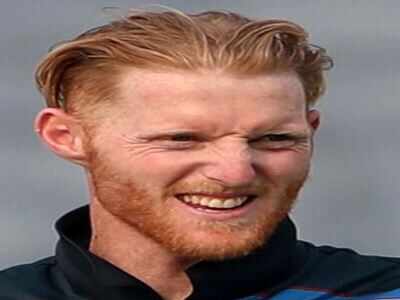Top Searches
- News
- World News
- UK News
- ‘Ben’s babes’: England forced to pick new squad as cricket team isolates
‘Ben’s babes’: England forced to pick new squad as cricket team isolates

England were forced to select a completely new squad for the Pakistan ODI series after seven of the group returned positive PCR Covid-19 tests on Monday, forcing the entire squad into self-isolation for 10 days.
Just as Boris Johnson was announcing the lifting of lockdown restrictions from July 19, in Bristol, three England players and four management staff tested positive for Covid-19 following the third ODI against Sri Lanka.
Rather than cancel the series, within 18 hours, the ECB had put together a new squad, which included nine uncapped players, and it confirmed the ODIs and the T20s against Pakistan will go ahead, with the first ODI set for Thursday.
Ben Stokes, who has been out with a broken finger, will return to lead the squad the ODI side for the first time. The team is being called Ben’s Babes. Chris Silverwood is back as head coach and Zak Crawley who scored a double century against Pakistan in 2020 is among the uncapped players, all of whom will have to first isolate in hotels until test results come back.

The decision threw county championships into disarray as around 11 to 12 players, including Ben Duckett, were withdrawn to join the new squad.
"We hoped it would just be a couple of positives and we could isolate them, but given the size of spread in the group the only thing to do was isolate whole group," explained managing director of England Men's Cricket, Ashley Giles.
The original team had not been in stringent bio-secure bubbles like last year and were this year operating in what the ECB called "safe environments", sharing certain hotel spaces with the public. A few weeks ago the team could play golf, exercise outdoors and get take-away coffee, Giles said, explaining the team had been under enormous mental pressure under stringent restrictions, but he said he was confident players had not breached any protocols.
He said a couple of those in isolation had minor "flu like symptoms" and the rest were asymptomatic.
Whilst the three ODIs against Pakistan are not a huge priority for England, they are part of the ICC Men's Cricket World Cup Super League, which will help determine which teams feature in the ICC Cricket World Cup 2023 in India.
"From a performance point of view it is not our best team, we know that, but it is exciting for some of these guys. Some of them would never have thought they would play to England," Giles said.
This is the first Covid outbreak within the England team and the last thing the ECB wants is a similar occurrence ahead of the India series in August, which is a very lucrative series.
"Pakistan have been extremely understanding of the situation and how we handled it," Giles said, adding the ECB was in regular contact with the BCCI. "I think it’s important we work really closely with BCCI and we are hopeful that as this summer moves forward we will be able to reduce the restrictions around teams and one of the important things is getting everyone double vaccinated," he said, explaining whilst all the team were single vaccinated, not all were double vaccinated.
Tom Harrison, ECB chief executive officer, said, ‘‘We have been mindful that the emergence of the Delta variant, along with our move away from the stringent enforcement of bio-secure environments, could increase the chances of an outbreak. We made a strategic choice to try to adapt protocols, in order to support the overall wellbeing of our players and management staff who have spent much of the last 14 months living in very restricted conditions."
Just as Boris Johnson was announcing the lifting of lockdown restrictions from July 19, in Bristol, three England players and four management staff tested positive for Covid-19 following the third ODI against Sri Lanka.
Rather than cancel the series, within 18 hours, the ECB had put together a new squad, which included nine uncapped players, and it confirmed the ODIs and the T20s against Pakistan will go ahead, with the first ODI set for Thursday.
Ben Stokes, who has been out with a broken finger, will return to lead the squad the ODI side for the first time. The team is being called Ben’s Babes. Chris Silverwood is back as head coach and Zak Crawley who scored a double century against Pakistan in 2020 is among the uncapped players, all of whom will have to first isolate in hotels until test results come back.

The decision threw county championships into disarray as around 11 to 12 players, including Ben Duckett, were withdrawn to join the new squad.
"We hoped it would just be a couple of positives and we could isolate them, but given the size of spread in the group the only thing to do was isolate whole group," explained managing director of England Men's Cricket, Ashley Giles.
The original team had not been in stringent bio-secure bubbles like last year and were this year operating in what the ECB called "safe environments", sharing certain hotel spaces with the public. A few weeks ago the team could play golf, exercise outdoors and get take-away coffee, Giles said, explaining the team had been under enormous mental pressure under stringent restrictions, but he said he was confident players had not breached any protocols.
He said a couple of those in isolation had minor "flu like symptoms" and the rest were asymptomatic.
Whilst the three ODIs against Pakistan are not a huge priority for England, they are part of the ICC Men's Cricket World Cup Super League, which will help determine which teams feature in the ICC Cricket World Cup 2023 in India.
"From a performance point of view it is not our best team, we know that, but it is exciting for some of these guys. Some of them would never have thought they would play to England," Giles said.
This is the first Covid outbreak within the England team and the last thing the ECB wants is a similar occurrence ahead of the India series in August, which is a very lucrative series.
"Pakistan have been extremely understanding of the situation and how we handled it," Giles said, adding the ECB was in regular contact with the BCCI. "I think it’s important we work really closely with BCCI and we are hopeful that as this summer moves forward we will be able to reduce the restrictions around teams and one of the important things is getting everyone double vaccinated," he said, explaining whilst all the team were single vaccinated, not all were double vaccinated.
Tom Harrison, ECB chief executive officer, said, ‘‘We have been mindful that the emergence of the Delta variant, along with our move away from the stringent enforcement of bio-secure environments, could increase the chances of an outbreak. We made a strategic choice to try to adapt protocols, in order to support the overall wellbeing of our players and management staff who have spent much of the last 14 months living in very restricted conditions."
FacebookTwitterLinkedinEMail
Start a Conversation
end of article
